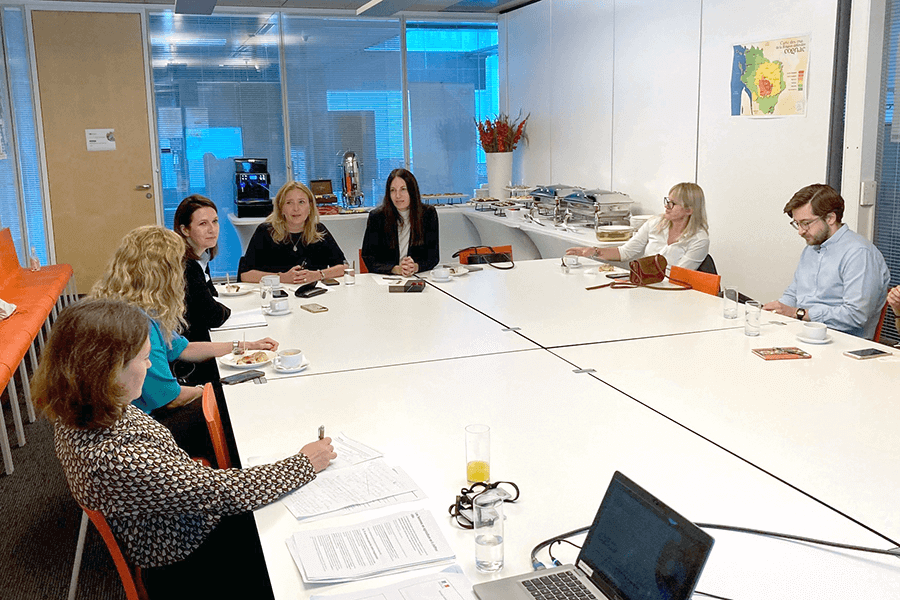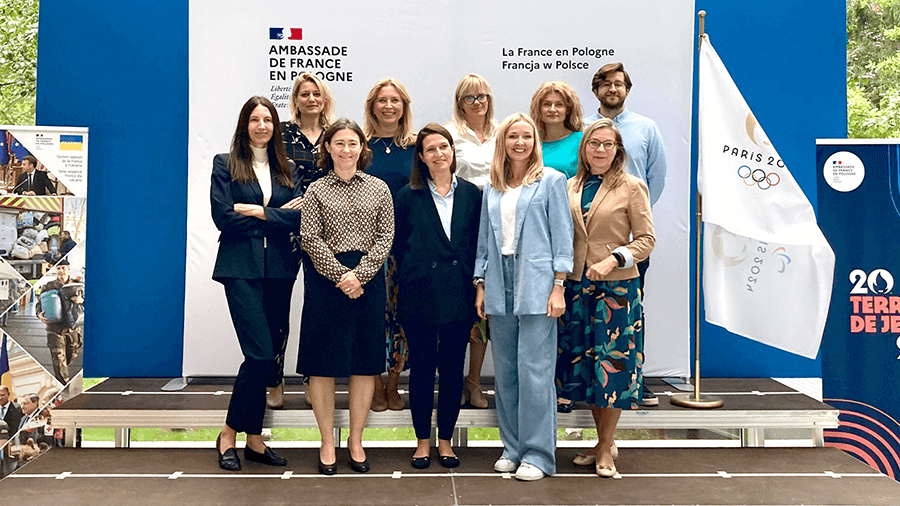In September, the Agro Woman initiative was hosted by the French Embassy in Poland. We talked about the situation of women in French agriculture and examples of what France does to support their role in the country’s agricultural sector.
One of the priorities of the previous and current mandate of French President Emmanuel Macron is to work towards gender equality in all areas of economic and social life. At the national level, an inter-ministerial action plan in this regard addresses, for instance, the fight against violence and sexism, economic equality, access to healthcare, inspiring and building positive role models among young people, the place of women in the media, and equality in rural areas. At the international level, activities are carried out within the framework of feminist diplomacy.
– emphasised Lucie Stepanyan, First Counsellor of the French Embassy in Poland during the meeting.
Women play a huge role in French agriculture. They are very often a vector of development and innovation, but there are still some discrepancies and differences in professional status for some of them. However, this situation is gradually changing, partly thanks to the actions taken by the French administration at national level through, for example, the work of the Senate Group for Gender Equality, as well as at local level, where women are increasingly represented in the authorities of the Chambers of Agriculture:
One in four farms in France is managed by women; they account for 26.2% of the heads of farms and 5.1% of the heads of agricultural businesses. In total, according to 2021 data, as many as 29.5% of farms and agricultural businesses were managed (or co-managed) by at least one woman. The average age of women who are heads of farms or agricultural businesses is 51 years.
– said Bożena Bochenek, Agricultural Attaché.
The main business sectors for women in French agriculture are horse breeding, where women represent a slight majority of farm and business heads – 50.2%; goat, sheep, pig and poultry breeding (47.7%); dairy cattle (17.3%); cereals and industrial crops (16%); and vines (12%).
In total, the French agricultural sector counts almost half a million economically active women, where 121,000 are self-employed and 360,000 are employed on a contract basis, representing 35.7% of all agricultural workers.
Interestingly, according to the MSA (Mutualité Sociale Agricole) agricultural insurance scheme, the health of female farmers is better than that of women of the same age living in urban areas. They are less often affected by lung and breast cancer, liver disease, neurological diseases, psychiatric diseases, chronic respiratory failure, end-stage chronic renal failure, rare diseases, or AIDS. They are more likely than women from metropolitan regions to suffer from cardiovascular disease, rheumatoid arthritis and related diseases or degenerative diseases such as Parkinson’s disease.
The meeting was attended by:
- Lucie Stepanyan, Embassy of France in Poland
- Bożena Bochenek, French Embassy in Poland
- Carolien Spaans, Royal Netherlands Embassy in Poland
- Olaf Horbańczuk, Embassy of the Kingdom of the Netherlands in Poland
- Lidia Trochimiak, Embassy of the Federal Republic of Germany in Warsaw
- Monika Stanny PhD Hab., Institute of Rural and Agricultural Development, Polish Academy of Sciences
- Joanna Gierulska, Agency for Development and Modernisation of Agriculture
- Karolina Tarnawska, Polish Association of Sustainable Agriculture and Food
- Małgorzata Bojańczyk, Polish Association of Sustainable Agriculture and Food
and guest speakers:
- Anna Reps-Bednarczyk, Danone.
The meeting also included the meeting of the Programme Board, at which we discussed upcoming projects and the direction of Agro Woman.
Agro Woman is an initiative of the Polish Sustainable Agriculture and Food Association to provide a platform for women to share their experiences, stories and a space to discuss the role of sustainability in agriculture, innovation, management and the challenges of the future.
Thank you to the French Embassy in Poland for the invitation and hospitality!



